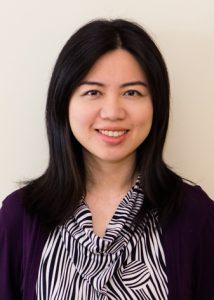 What is your day job?
What is your day job?
I am a fellow in urogynecology. My work is divided between clinical care, research, and resident and medical student education.
What is your primary research focus?
Research opportunities are endless in the field of urogynecology. I’m at the beginning of my career, and I’m open to all research opportunities that translate into advances in clinical care. One of my areas of interest is the prevention and management of pelvic floor trauma after childbirth.
What drew you to this area of research?
Compared to the rest of the world, Canada has one of the highest rates of perineal trauma from vaginal delivery. Perineal trauma can impair women’s quality of life both in the short and long term. In the immediate postpartum period, women will experience perineal pain from edema, bruising, infection, or wound breakdown. Long term sequelae of perineal trauma include sexual dysfunction, fecal incontinence, abscess formation and rectovaginal fistulae, all debilitating conditions with extremely low cure rates. In fact, anal sphincter injuries sustained during vaginal deliveries are recognized as the most common cause of anal incontinence and anorectal symptoms in otherwise healthy women. Therefore, the ability to effectively prevent, recognize, and treat these injuries is crucial for women’s physical and emotional well being.
What do you find are the biggest challenges in pursuing research while being a clinician?
The ability to balance my clinical work with research.
What are the greatest supports for your research?
The greatest supports for my research are my fellowship mentors, research coordinator, and patients.
What are your future plans and goals? What would you like your research to achieve?
In the United Kingdom, multidisciplinary perineal clinics were created to provide standardized care to women after obstetrical perineal trauma. Unfortunately, Canada lacks such specialized clinics. I plan to do an observership in perineal clinics in the United Kingdom, to obtain the skills and knowledge needed to develop comparable clinics in Canada. I also hope my research will identify specific care needs of postpartum women in Canada, and this information can be used to create patient education materials and care protocols to enhance their recovery from perineal trauma.
When you aren’t busy being a clinician and a researcher – what do you do?
I am a foodie. I love traveling and attending events for the joy of trying all types of food.